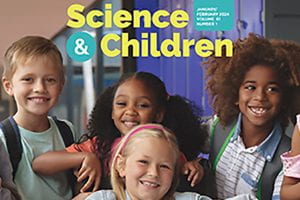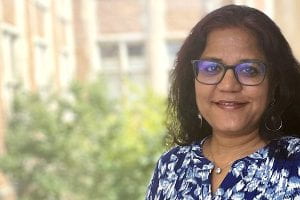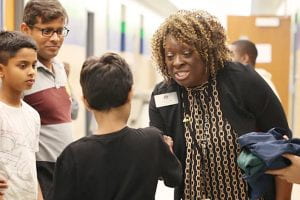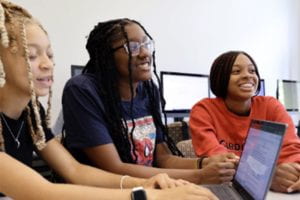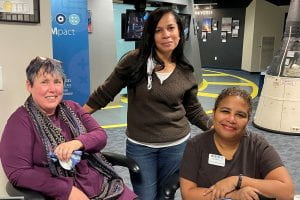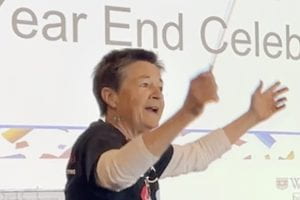High School Educators Selected as Summer Teacher Researchers at WashU
Eight teachers from schools across the St. Louis region have been selected to work with Washington University faculty members for the Summer 2024 Teacher Researcher Partnership Program. Administered in collaboration with the University’s Institute for School Partnership (ISP), the program is designed specifically to provide opportunities for faculty to connect in meaningful ways with educators in […]
Through ASSET Program, students see science that’s alive and active
“Science is something you do, not a bunch of stuff you memorize.” Longtime biology teacher Jessica Rowe has always believed this, and she’s thrilled to be able to start biology classes for freshmen and sophomores at Francis Howell Central High School with an experience that is all about doing. They just need microscopes and an introduction […]
Brain Bee gives St. Louis students a chance to explore neuroscience (Links to an external site)
More than 60 high school students representing 32 schools conducted experiments, explored careers in neuroscience and tested their knowledge of the human brain and the nervous system at the 14th annual St. Louis Area Brain Bee March 2 at Washington University in St. Louis.
Framework provides essential criteria for development and delivery of equitable science learning
Teaching science in a way that includes and engages all learners can be challenging for educators, but a new framework developed by the Institute for School Partnership at Washington University in St. Louis (ISP) provides criteria for equitable lesson development in elementary science. A team of researchers and practitioners identified six categories that must be […]
ISP welcomes first Saint Louis Translational Fellow in Education
The Institute for School Partnership at Washington University in St. Louis (ISP) is pleased to welcome Pallavi Chhabra as a postdoctoral researcher for the Fall 2023 semester. A postdoctoral research associate with the Education Department at Washington University, Dr. Chhabra is among the first researchers to participate in The Saint Louis Translational Fellowship in Education, […]
Jefferson City’s first STEM school partners with ISP to become STEMcapable
Roller coasters are fun, but for safety’s sake, they must be designed, built and maintained by mechanical engineers. It’s a STEM career path that Adrianna Koty has enjoyed discussing recently with the fifth graders in her class at Thorpe Gordon STEM Academy in Jefferson City, Missouri. “Giving students real-world problems to solve and think about […]
Brown School Summer Partnership Builds Black Girls’ STEM Skills, Confidence (Links to an external site)
ISP is proud to collaborate with WashU and community partners to welcome these young women to campus and the world of STEM.
Pener Selected To Lead STEM Teacher Quality (TQ)
V. Barbara Pener has been selected to serve as program director for STEM Teacher Quality (TQ), an immersive year-long STEM professional learning experience that has equipped 1,071+ and impacted 35,000+ students throughout the Greater St. Louis region since 2011. Read more about Pener’s leadership of STEM TQ’s eleventh cohort.
Empowering teachers (Links to an external site)
In 2020, Washington University in St. Louis joined St. Louis Public Schools (SLPS) in a bold new experiment to turn around two of the district’s lowest performing elementary schools, Ashland Elementary in North St. Louis and Meramec Elementary in South St. Louis. Only it wasn’t an experiment at all. Read about how teachers from these two […]
STEM equity champion Deb Holmes passes torch for teacher quality program with powerful message: Any Child Can Learn Anything
When teachers arrive for the first morning of STEM Teacher Quality (TQ) they know they’re in for something immersive and special. With support from their districts, they’ve just committed a full year of their time and energy to an experience that promises to boost their confidence and skills in the subjects of science, technology, engineering […]


